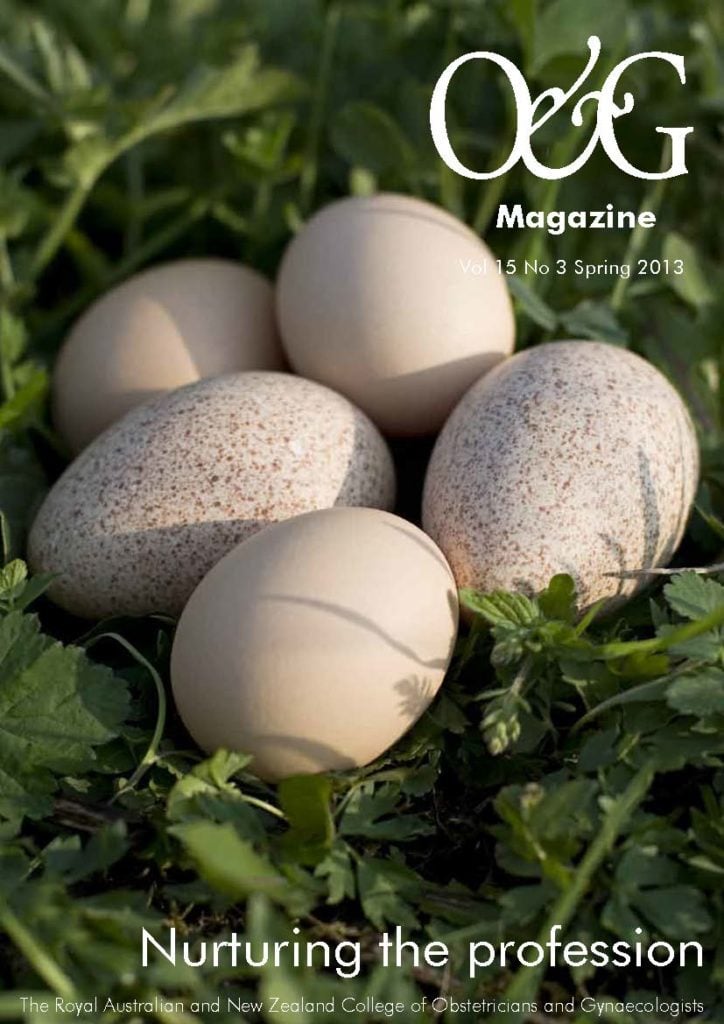There are many reasons to lobby government. The process is about maximising the benefit and preventing, minimising or reversing the harm of government’s decisions.
Governments regulate, set standards and distribute money. When they perform these functions the outcomes can be helpful or harmful. This is where the lobbyist comes in. The endpoint of most of lobbying usually has some commercial impact on the area you represent.
It used to be so easy. The first time I negotiated a new item number for the Medicare Benefits Scheme (MBS) we wrote an eight-page submission and presented to the Department of Health. A relatively short meeting mediated by the Australian Medical Association (AMA), lunch with the Medical Advisor where we promised it was a really good procedure, some gentle argy bargy with the Department about the price and, finally, a relatively smooth passage of the new descriptor through the Minister’s Office and, lo and behold, come November, there was a new item in the Gynaecology Schedule.
Now the art of medical politicking has become so much more complex. We are currently helping the gynaecological oncologists revamp all of their item numbers in the MBS, many of which are woefully underfunded. Our initial submission will run to over 250 pages. At that point, the process will have taken nearly two years.
In my very junior years, I listened to our senior representatives reporting on meetings that they had with government, particularly about the poor levels of remuneration for O and G. I was stunned by the lack of organisation, structure and purpose. There were no data. No one was really even sure how many deliveries were performed in Australia. Not only did we not go forwards, but we also went backwards when the global obstetric fee was introduced, which sliced remuneration for patients by about a third.
If we were to get anywhere as a speciality, we needed to become much more professional. The National Association of Specialist Obstetricians and Gynaecologists (NASOG) was established, in 1988, to provide the political structure and lobbying that could not be done within the College charter. Part of NASOG’s eventual strength and success came from the fact that it worked in tandem with a high-quality standards body (our College).
This demonstrates the most important principle of medical lobbying. Represent the interests of patients and highest quality medical standards for the community and just rewards may follow. Good medicine and best practice don’t come cheaply. Over the next 20 years our lobbying for change in the structure of private sector O and G and its remuneration became much more professional and successful.
How does one successfully influence government?
First, you need an organisation with a secretarial structure, funding and the ability to interact with other medical organisations. If you are to have influence you need a hat.
A title is essential for networking. Networking is one of the keys to successful lobbying. The AMA is our most important umbrella medical organisation. It has a full-time secretarial and bureaucratic presence in Canberra. The AMA talks to the Department of Health and many politicians daily. Used properly, the AMA is an important key to Canberra. However, it is also vital to have a working relationship with your College, the GP organisations and any other specialities that overlap into your area. If you are trying to guide a reform through Canberra you don’t want to see it fail at the last minute, blocked by another medical organisation for a lack of consultation or perceived disadvantage.
The government in Canberra has two wings: the first is the political arm of the minister, their office and the actual government itself; the second is the professional and full-time public servants of the department. The two arms sometimes work together. If you want to understand this relationship, watch Yes Minister several times.
If you introduce a submission or policy change then you choose either the political or the bureaucratic arm as your entry point. However, it is important to immediately take care of both arms. If you intend to take an idea in through the Minister of Health’s office you must brief the public servants immediately. Similarly, if you are trying to work up an idea with a public servant, it is very wise to get the Minister’s office on side at the start as well.
It is much better to go to Canberra with a deal in mind, rather than simply begging for money. When Parliament is in session there are queues of lobbyists and representatives lining up at Parliament House, just like the agents did with their patrons in ancient Rome. Nearly all of the lobbyists want money delivered in one form or another. It is, therefore, much better to go with a plan that delivers political wins and bureaucratic solutions in return for what you want. It is vitally important to be well researched and prepared. We now have access to much of the Government’s data. However, extensive other research is important.
When we were lobbying for better obstetric remuneration, the key was to demonstrate that patients (voters) were increasingly disadvantaged by high gaps. There were no data to support this, so NASOG employed a nurse to act as a prospective patient and ring 600 obstetrician’s offices and to obtain quotes. We gathered data on fees and patterns of billing that was the only verifiable data in Australia on the true level of obstetric gaps. We provided these data to the Minister, the Department and the press. The case for change was therefore based on fairness and equity in the Medicare system for disadvantaged consumers.
If one is to negotiate and lobby successfully it is like any other skill. While some people may have better natural skills, the best results are derived from appropriate training. I had the privilege of working with two of the best O and G lobbyists in the business: Dr Andrew Pesce and Dr Scott Giltrap. We went to many professional development courses in lobbying, negotiation, policy development and media management. These are invaluable training and are not to be underestimated. Too often doctors, when outside their medical comfort zone, are rather like thepatricians of Rome who simply assumed that because of their educative and social status that the right moves would slip into their brains as the enemy appeared over the hill.
Another key to success is a tight, well-researched submission. If theDepartment of Health is going to steer your proposal through theMinister’s office and the other departments, especially Finance, theproposal must be watertight, well costed and well negotiated. Thisproposal must be backed up by making sure the Minister and theiroffice understand the content and import of what you are doing.One page of dot points is usually sufficient for this.
At a political level, successful lobby groups meet their Ministeras frequently as possible. Fundraising functions and dinners areimportant contact points. It is often useful, if you are in a positionof influence in your institution or hospital, to have the Ministeralong to open something important, such as a conference.Activities that give the Minister a positive profile in their portfoliosare helpful. We do use paid and professional lobbyists to help ourcause as well.
It is important to work with Canberra in a congenial andprofessional way. Some have a very negative view of the Canberrapublic servants. However, my experience of Canberra has been, ingeneral, a very positive one. It’s fair to say that the public servicedoes have a different set of processes to achieve a result than weuse in the ward or the operating theatre. However, most publicservants that I have worked with understand the primary focus oftheir job is to administer the country in a beneficial way. If theyare going to do that efficiently and effectively they need adviceand assistance from professionals in their area. For medicine,that is frequently doctors. It is important in your dealings withthe Department to be absolutely honest and accurate. Policyand legislative change have to jump a dozen hurdles and yourprofessional integrity is vital.
A key quality to have is that of patience. Canberra rarely moves with the speed of the startled gazelle. Sometimes there is a happy coincidence where bureaucratic efficiency melds with political need, especially before an election, which can make the wheels spin amazingly quickly. It is extremely important to be alert for these opportunities.
Finally, if you are steering a major change, such as a revision of asignificant section of the Medicare schedule, never relax. The lastten per cent of the process is 90 per cent of the effort. You needto be vigilant; constantly on the phone and e-mail to make sureeverything is moving forward and no sudden unexpected glitchesarise either from friend or foe.
How do you become a successful medico-political lobbyist?Get interested and join NASOG, the AMA and the Collegecommittees. Learn from your peers. Do the courses. Oh and,by the way, watch Yes Minister and Front Line regularly and then Shogun and The Godfather.






Leave a Reply